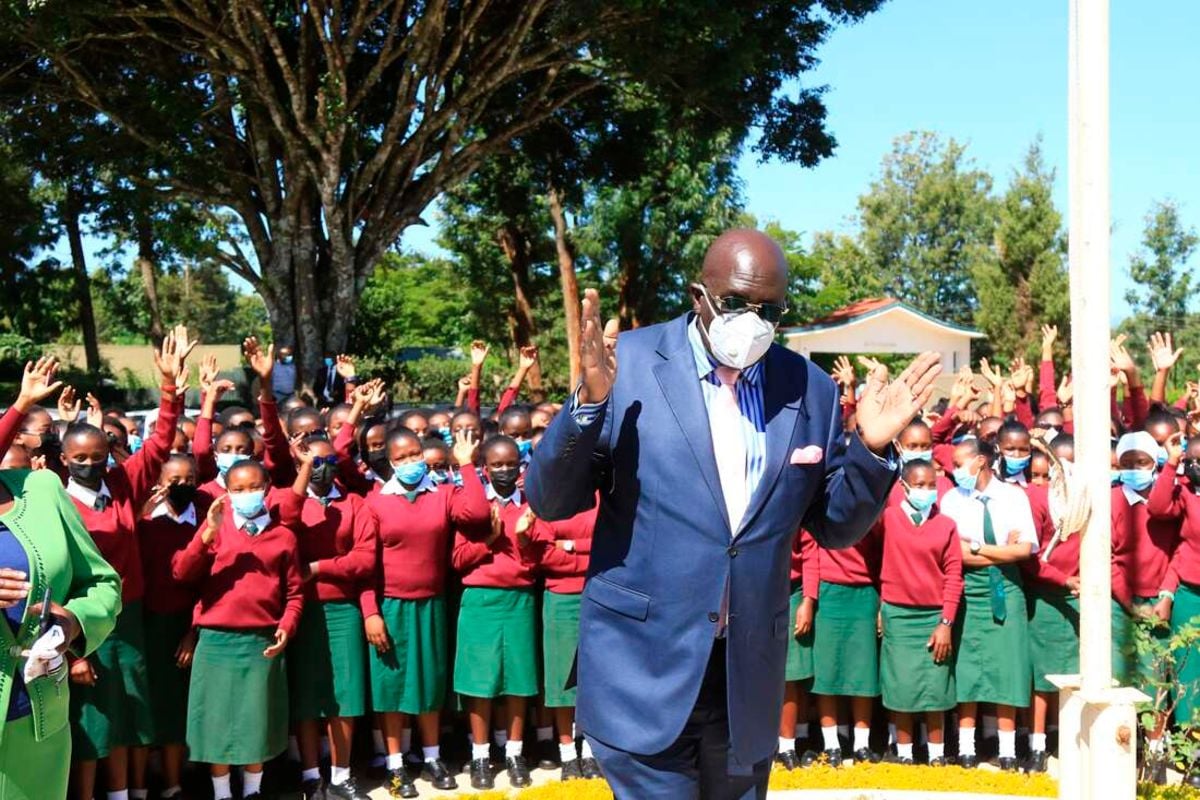wrongturn
Elder Lister
part 1 is here https://kenyanlist.net/index.php?threads/cbc-confusion.27672/

 nation.africa
nation.africa
The Ministry of Education has clarified that junior secondary school will be hosted in both day and boarding institutions.
Education Cabinet Secretary George Magoha said all the existing boarding and day secondary schools will admit learners transitioning from Grade Six to Grade Seven under the competency-based curriculum (CBC) in line with guidelines to be provided by the ministry.
The ministry had identified 1,500 primary schools that will host junior secondary school because they have adequate learning and teaching facilities as well as land for physical expansion, he said.
Some of the primary schools would be developed further to have full-fledged secondary wings in the future.
“The Ministry of Education wishes to clarify that junior secondary school will be offered in both boarding and day secondary schools across the country under the CBC,” Prof Magoha said in a statement yesterday.
“The government wishes to assure all Kenyans and especially learners, parents and teachers that implementation of CBC is on course and that systems and structures for transition from primary to junior secondary are in place,” he said.
Prof Magoha said implementation of CBC and transition from primary to junior secondary and later to senior secondary school, is based on the recommendations of the task force that he appointed in 2019, which handed over its report to President Uhuru Kenyatta in February last year.
The ministry has advised private schools, especially in urban areas, to set up stand-alone junior secondary schools to provide spaces for learners to transition into the secondary level.
According to the CBC task force report, junior secondary will comprise Grades Seven, Eight and Nine. The report recommended that the classes be domiciled in secondary schools.
The task force, led by Prof Fatuma Chege, who is also the Principal Secretary for Implementation of Curriculum Reforms, recommended that the ministry makes progressive expansion of capacities of existing secondary schools that have adequate land to accommodate more learners in 2023.
There are 10,359 secondary schools in the country, 9,039 of which are public, 1,285 private and 35 for special needs education.
To ensure a smooth transition, the government is building 10,000 classrooms in schools across the country. So far 6,495 new classrooms have been completed in the first phase, with 5,000 of them already handed over. They are expected to be complete by the end of this month.
Prof Magoha said the government had rolled out training for secondary school teachers to prepare them to handle learners who will be transitioning from Grade 6 of primary to junior secondary school next year.
On Monday, Lawrence Karuntini, a senior official in the Directorate of Secondary Education, had said junior secondary would be hosted in primary schools. He was speaking during a briefing hosted by Government Spokesman Cyrus Oguna.
“Our focus is that this should be a day school. It is not boarding. The transition from Grade Six to Seven will be in such a way that students move to schools that are within where they are now in school. The capacity for boarding will not be necessary for junior secondary level. The thinking and planning is that this is a day school. Transition will be to nearby schools,” Mr Karuntini had said.
more confusion tu.

Education ministry clears the air on junior secondary
New level under CBC will be hosted by both primary and secondary schools.
The Ministry of Education has clarified that junior secondary school will be hosted in both day and boarding institutions.
Education Cabinet Secretary George Magoha said all the existing boarding and day secondary schools will admit learners transitioning from Grade Six to Grade Seven under the competency-based curriculum (CBC) in line with guidelines to be provided by the ministry.
The ministry had identified 1,500 primary schools that will host junior secondary school because they have adequate learning and teaching facilities as well as land for physical expansion, he said.
Some of the primary schools would be developed further to have full-fledged secondary wings in the future.
“The Ministry of Education wishes to clarify that junior secondary school will be offered in both boarding and day secondary schools across the country under the CBC,” Prof Magoha said in a statement yesterday.
“The government wishes to assure all Kenyans and especially learners, parents and teachers that implementation of CBC is on course and that systems and structures for transition from primary to junior secondary are in place,” he said.
Prof Magoha said implementation of CBC and transition from primary to junior secondary and later to senior secondary school, is based on the recommendations of the task force that he appointed in 2019, which handed over its report to President Uhuru Kenyatta in February last year.
The ministry has advised private schools, especially in urban areas, to set up stand-alone junior secondary schools to provide spaces for learners to transition into the secondary level.
According to the CBC task force report, junior secondary will comprise Grades Seven, Eight and Nine. The report recommended that the classes be domiciled in secondary schools.
The task force, led by Prof Fatuma Chege, who is also the Principal Secretary for Implementation of Curriculum Reforms, recommended that the ministry makes progressive expansion of capacities of existing secondary schools that have adequate land to accommodate more learners in 2023.
There are 10,359 secondary schools in the country, 9,039 of which are public, 1,285 private and 35 for special needs education.
To ensure a smooth transition, the government is building 10,000 classrooms in schools across the country. So far 6,495 new classrooms have been completed in the first phase, with 5,000 of them already handed over. They are expected to be complete by the end of this month.
Prof Magoha said the government had rolled out training for secondary school teachers to prepare them to handle learners who will be transitioning from Grade 6 of primary to junior secondary school next year.
On Monday, Lawrence Karuntini, a senior official in the Directorate of Secondary Education, had said junior secondary would be hosted in primary schools. He was speaking during a briefing hosted by Government Spokesman Cyrus Oguna.
“Our focus is that this should be a day school. It is not boarding. The transition from Grade Six to Seven will be in such a way that students move to schools that are within where they are now in school. The capacity for boarding will not be necessary for junior secondary level. The thinking and planning is that this is a day school. Transition will be to nearby schools,” Mr Karuntini had said.
more confusion tu.
